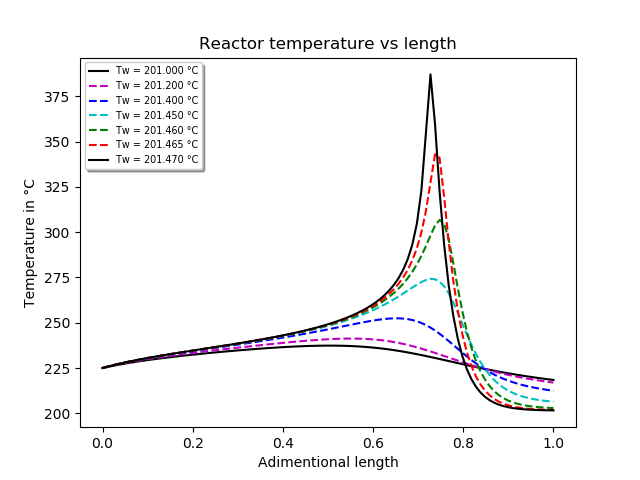I have modelled a multi-tubular reactor performing a Fischer-Tropsch synthesis of alkanes and I was wondering about the stability of such a reactor. Even a very tiny deviation of the wall temperature can lead to a potential destruction of the catalyst if not more...
The Fischer-Tropsch synthesis I am modelling as an adiabatic temperature around 1200 K. This is the result I get when the wall temperature varies from 201.000 °C to 201.470 °C.
So theoretically a variation of less than 0.5 K can lead to a reactor temperature variation of more than 150 K.
How to control the temperature along the reactor (it can be more than 10 meter long) as precisely as let 0.1 K say of difference to avoid such unpleasant drift leading to a potentially bad situation?
